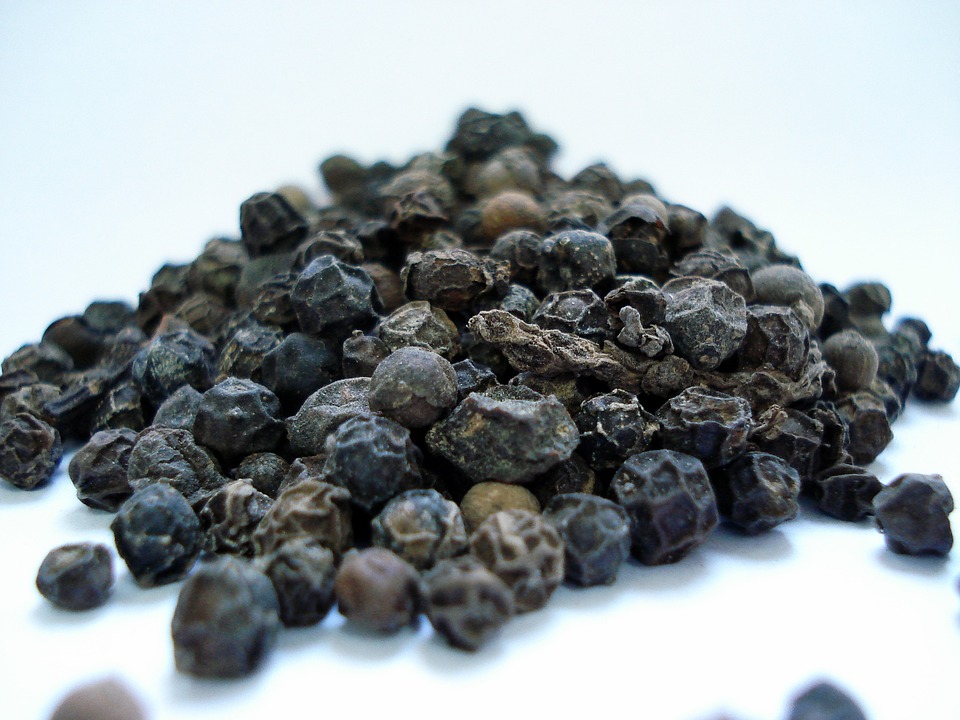
Black pepper is a parasitical creeper that grows up on host plants and is found throughout India. Named after one of the names of the sun, maricha. Its fruit is first green, then red, then yellow and finally turns black on drying and is a good tonic for respiratory, circulatory and digestive systems. It is widely used for respiratory disorders.
Benefits of Black Pepper: Asthma, sinus congestion, colic, cholera, gas, diarrhea, piles, worms, sore throat, fever, intermittent fever, malaria, chronic indigestion, colon disease, arthritic and neuralgic pain, skin diseases, gastric diseases, cold extremities, obesity, cough, bronchitis, pneumonia, hepatitis, cirrhosis.
Habitat: Perennial climbing shrub is found throughout India and thrives in the humid climates of south-west India and Srilanka.
Action: Digestive stimulant, carminative, antibacterial, diaphoretic, analgesic, expectorant, febrifuge, anthelmintic
Scientific name: Piper nigrum.
Useful part: Fruit.
Dosage: 1–5g per day dried or 1–2ml per day.
Ayurvedic Action
Svasa: Helps breathing.
Amanasaka: Destroys toxins.
Dipana: Enkindles appetite.
Pacana: Digests toxins.
Kaphavatajit: Alleviates kapha and vata.
Pramathi: Removes accumulated dosas from the dhatus.
Krmighna: Kills parasites.
Rasayana(Pranavahasrots): Rejuvenative to respiratory system.
Energetics
Rasa (taste): Pungent, bitter
Vırya(energy): Hot
Vipaka (post-digestive effect): Sweet
Guna (quality): Light, dry, penetrating
Dosa effect: VK−, P+
Dhatu (tissue): Plasma, blood, fat,nerve
Srotas (channel): Digestive, respiratory, circulatory, excretory
Classical and common names
Ayurvedic: Maricha, Vellaja, Uushna, Suvrrita, Krishnaa.
English: Black Pepper.
Constituents: Essential oil Sabinene, camphene, myrcene, piperonal, limonene, Alkaloid Piperine, piperidine, piperanine, Fixed oil, Chromium.
Preparation: Infusion, powder, milk decoction.